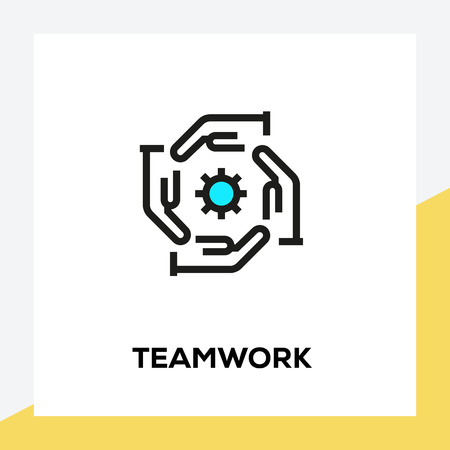Introduction to Job Search in the U.S.
Starting a job search in the United States can feel overwhelming, especially with so many websites and resources available today. Understanding what makes the American job market unique will help you stand out and make smarter choices as you hunt for your next role. In this section, we’ll explore key trends, cultural expectations, and how online job boards are shaping modern job searches in America.
Key Trends in the American Job Market
The U.S. job market is always changing. Over the last few years, there’s been a big focus on remote work, flexible hours, and diversity in hiring. Many companies are looking for candidates who are adaptable and tech-savvy. Here’s a quick look at some current trends:
| Trend | Description |
|---|---|
| Remote Work | Many jobs now offer remote or hybrid options, making it easier to work from anywhere. |
| Diversity & Inclusion | Employers value diverse backgrounds and inclusive workplaces more than ever. |
| Tech Skills | Digital literacy is a must, even for roles outside of IT. |
| Gig Economy | Short-term contracts and freelance opportunities are growing fast. |
Cultural Expectations When Applying for Jobs
The American job search process has its own set of unwritten rules. For example, resumes should be clear and concise—usually no longer than one page for most professionals. Cover letters are expected to be personalized for each application. Networking also plays a huge role; “who you know” often matters just as much as “what you know.”
Common Application Practices in the U.S.
| Practice | What It Means |
|---|---|
| Personalized Resume | Tailor your resume to each job; highlight relevant skills and experience. |
| Cover Letter | A short letter that explains why you’re a good fit for the position. |
| Networking | Reach out to connections on LinkedIn or attend industry events to meet employers. |
| Follow-Up Emails | Saying thank you after interviews is seen as polite and professional. |
The Role of Online Job Boards in Modern Job Searches
Online job boards have become the go-to tool for American professionals looking to switch careers or find new opportunities. From industry-specific sites to broad platforms like Indeed or LinkedIn, these websites allow you to filter jobs by location, salary, company size, and more. They also provide tools like resume builders, company reviews, and application tracking systems to make your search easier and more efficient.
Why Use Online Job Boards?
- Access thousands of listings instantly
- Easily apply to multiple jobs at once
- Research companies before applying
- Set up alerts for new opportunities that match your interests
- Connect directly with recruiters and hiring managers
This guide will walk you through the best job search websites used by American professionals today, helping you navigate your way to your next great opportunity.
2. Top General Job Search Websites
When it comes to job hunting in the United States, a few major websites stand out as go-to resources for American professionals. These platforms offer a wide variety of job listings, user-friendly tools, and valuable company insights that make them favorites across industries and career levels. Let’s take a closer look at three of the most popular general job search sites: Indeed, Glassdoor, and Monster.
Indeed
Indeed is known as one of the largest job search engines in the U.S. It pulls listings from thousands of company career pages and job boards, making it incredibly comprehensive. You can search by job title, location, salary range, and more. Setting up job alerts is simple, so you’ll always be notified about new opportunities that match your interests.
Main Features:
- Massive database of jobs from all industries
- Easy resume upload and application process
- Salary comparison tools
- Company reviews and ratings
Best For:
Professionals who want access to the widest range of jobs with minimal fuss.
Glassdoor
Glassdoor combines job listings with unique insights into company culture, salaries, and interview experiences shared by current and former employees. This platform is especially useful if you want to learn what it’s really like to work somewhere before you apply.
Main Features:
- Job search plus detailed company reviews
- Salaries shared by employees
- Interview questions and tips
- Ability to filter companies by ratings or benefits
Best For:
Job seekers who value transparency and want inside info on employers before making a move.
Monster
Monster has been around since the early days of online job searching and continues to be a trusted site for both entry-level and seasoned professionals. It offers helpful resources like resume building tools and career advice articles alongside its robust job search function.
Main Features:
- User-friendly search filters (industry, location, experience level)
- Resume posting for employers to find you directly
- Email alerts for matching jobs
- Career resources and advice
Best For:
Candidates who want personalized support throughout their job search journey.
Quick Comparison Table
| Website | Main Strengths | Unique Feature |
|---|---|---|
| Indeed | Largest number of listings; fast applications | Aggregates jobs from everywhere |
| Glassdoor | Company insights & reviews; salary data | User-shared interview experiences |
| Monster | User-friendly filters; career resources | Resume visibility to employers |
If you’re starting your job search or looking to compare multiple roles across different companies, these general job boards are excellent first stops. Each has its own strengths, so feel free to use them together for the best results.

3. Industry-Specific Platforms
When it comes to job hunting, using industry-specific job boards can make your search more targeted and efficient. These platforms focus on certain fields—like tech, healthcare, finance, or education—giving you access to roles that are highly relevant to your background and career goals. By narrowing your search, you’re more likely to find positions that match your skills and interests.
Why Use Industry-Specific Job Boards?
Unlike general job websites, industry-specific platforms often feature postings from companies seeking specialized talent. Employers on these sites know they’re reaching a focused audience, so you’re less likely to waste time sifting through unrelated listings. Plus, many of these platforms offer resources tailored for their field, such as resume tips or salary benchmarks.
Top Industry-Specific Job Boards in the U.S.
| Industry | Recommended Platform | Key Features |
|---|---|---|
| Tech & IT | Dice | Tech-focused jobs, skill-based searches, employer reviews |
| Healthcare | Healthcare Jobs | Wide range of clinical & non-clinical roles, licensure info |
| Finance & Accounting | eFinancialCareers | Finance industry updates, global opportunities, networking events |
| Education | HigherEdJobs | College/university positions, administrative & faculty openings |
| Marketing & Creative | CreativeHotlist | Design, advertising, digital media jobs; creative portfolios |
| Engineering | EngineerJobs | Civil, electrical, mechanical engineering roles nationwide |
| Nonprofit & Social Work | Idealist | Nonprofit jobs, internships, volunteer opportunities |
Tips for Finding the Right Site for Your Field
- Research Multiple Platforms: Check out several job boards in your industry and compare their features and job volume.
- Read Reviews: Look up feedback from other professionals in your field about which sites helped them the most.
- Check Company Listings: See if top employers in your industry post regularly on the platform.
- Look for Extra Resources: Some sites offer salary guides, networking events, or resume help specific to your career path.
- Create Alerts: Sign up for email notifications so you don’t miss new opportunities in your area of expertise.
The Bottom Line on Industry Job Boards
If you want to land a role that truly matches your skill set and ambitions, targeting specialized job boards is a smart move. They not only connect you with the right employers but also keep you informed about trends and expectations in your chosen field.
4. Tips for Maximizing Your Job Search Online
Best Practices for Building a Standout Online Profile
Having a strong online presence is essential for American professionals looking to land their next big opportunity. Recruiters often look at your profiles before reaching out, so it’s important to make sure you’re putting your best foot forward. Here are some simple steps:
- Use a professional photo: Choose a clear, recent headshot with a neutral background.
- Craft a compelling headline: Summarize your expertise and what makes you unique in one sentence.
- Highlight achievements: Focus on measurable results, not just job duties.
- Keep information up-to-date: Regularly update your skills, experience, and education.
- Add keywords: Use industry-specific terms that recruiters search for.
Example: LinkedIn Profile Best Practices
| Section | What to Include |
|---|---|
| Photo | Professional headshot, friendly expression |
| Headline | Your role + key skills (e.g., “Project Manager | Agile & Scrum Certified”) |
| About | A short summary highlighting your top achievements and career goals |
| Experience | Action-oriented bullet points with quantifiable outcomes |
| Skills & Endorsements | Add relevant skills and ask colleagues for endorsements |
| Recommendations | Request short recommendations from former managers or coworkers |
Optimizing Your Resume for Applicant Tracking Systems (ATS)
An ATS scans resumes before a human sees them, so making sure yours passes through is critical. Here’s how you can optimize your resume for job search sites popular in the U.S.:
- Use standard headings: Stick to common section titles like “Work Experience” and “Education.”
- Avoid graphics and tables: ATS software may not read them correctly; use plain text instead.
- Incorporate keywords: Mirror words from the job description throughout your resume.
- Save as .docx or PDF: These formats are generally ATS-friendly.
- Simplify formatting: Avoid complex layouts, columns, or unusual fonts.
ATS-Friendly Resume Checklist
| Tip | Description |
|---|---|
| No images or logos | Keeps the file readable by most ATS systems. |
| BASIC fonts only (Arial, Calibri) | Avoids compatibility issues. |
| Date format: MM/YYYY – MM/YYYY | Makes employment periods easy to parse. |
| No headers/footers for contact info | Puts all vital info in the main body of the document. |
| Certain keywords used 2-3 times each | Mimics language from the target job listing. |
Leveraging Networking Tools on Job Search Websites
The power of networking can’t be underestimated when searching for jobs in the U.S. Many job sites offer built-in tools to help you connect with other professionals. Here’s how you can use them to your advantage:
- Join groups: Participate in industry-specific forums or groups on platforms like LinkedIn or Indeed Community.
- Engage with content: Comment on posts, share articles, and react to updates from people in your field.
- Send personalized connection requests: Briefly explain why you want to connect—maybe you admire their work or share an interest.
- Attend virtual events: Many sites host webinars or networking sessions tailored to specific industries or roles.
Main Networking Features by Platform
| Website | Main Networking Tool(s) |
|---|---|
| Groups, messaging, recommendations, virtual events | |
| Indeed | User community forums, company Q&A, job seeker events |
| Glassdoor | User reviews, employer Q&A sections, salary insights sharing |
Your Next Steps Online!
If you follow these tips and tailor your approach based on each platform’s strengths, you’ll boost your visibility and increase your chances of landing interviews on the best job search websites for American professionals.
5. Staying Safe and Avoiding Scams
How to Protect Your Personal Information on U.S. Job Websites
When searching for jobs online, it’s important to stay alert and keep your personal information safe. While most job boards are trustworthy, there are scammers out there looking to take advantage of job seekers. Here’s how you can protect yourself:
- Never share your Social Security Number (SSN) or bank details unless you’ve accepted a legitimate job offer and completed background checks.
- Use strong, unique passwords for every job site account you create.
- Limit the personal information in your public resume—leave out your full address and only use a professional email address.
- Be cautious with links: Only click on links from official company websites or reputable platforms.
- Research the employer: Look up the company’s website and reviews on sites like Glassdoor or Indeed before sharing any details.
Spotting Common Job Scams in America
Scammers often use similar tricks to lure in job seekers. The table below highlights some red flags to watch for:
| Red Flag | What It Means | What To Do |
|---|---|---|
| Unusually high pay for simple work | If an entry-level job promises $100K+, it’s likely a scam. | Check typical salaries on Glassdoor or Payscale. |
| Requests for payment upfront | Legit employers never ask you to pay for training, software, or background checks before hiring. | Walk away and report the listing. |
| No interview or quick hire offers via email/text only | Real companies will want to meet you, at least virtually, before making an offer. | Insist on a video interview or phone call; verify company info independently. |
| Emails from free email accounts (e.g., Gmail, Yahoo) | Most real companies use business emails (e.g., @company.com). | Double-check the sender’s credentials. |
| Poor spelling and grammar in job descriptions | Scam listings often have typos and awkward language. | Look for professionalism in all communications. |
| Pressure to act fast or “urgent” offers | Scammers want you to skip due diligence. | Take your time and do your research first. |
Quick Tips for U.S. Job Seekers:
- If something feels off, trust your instincts—don’t move forward without doing more research.
- Report suspicious listings directly to the job site or the Federal Trade Commission (FTC).
- Keep copies of any suspicious emails or texts in case you need them later.
Your Safety Matters!
Finding a new job is exciting, but staying safe should always come first. By following these tips and being aware of common scams, you can make the most of America’s top job search websites with confidence.


